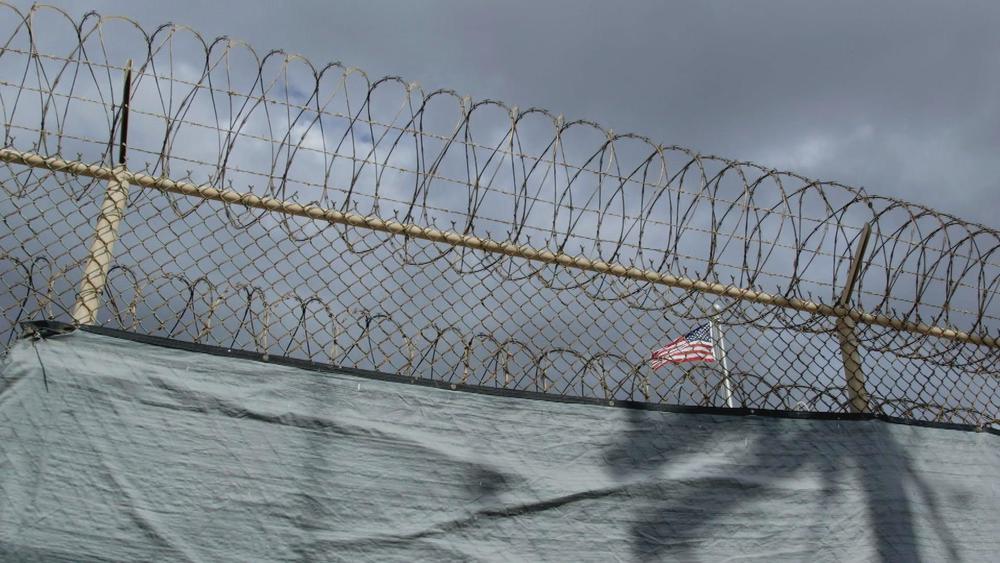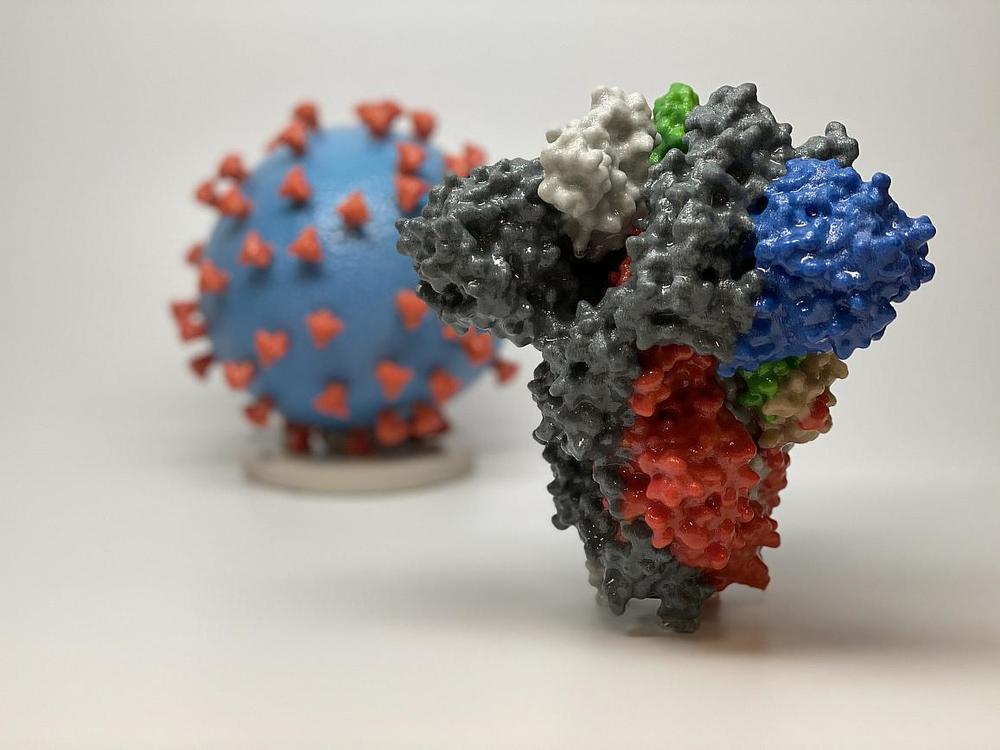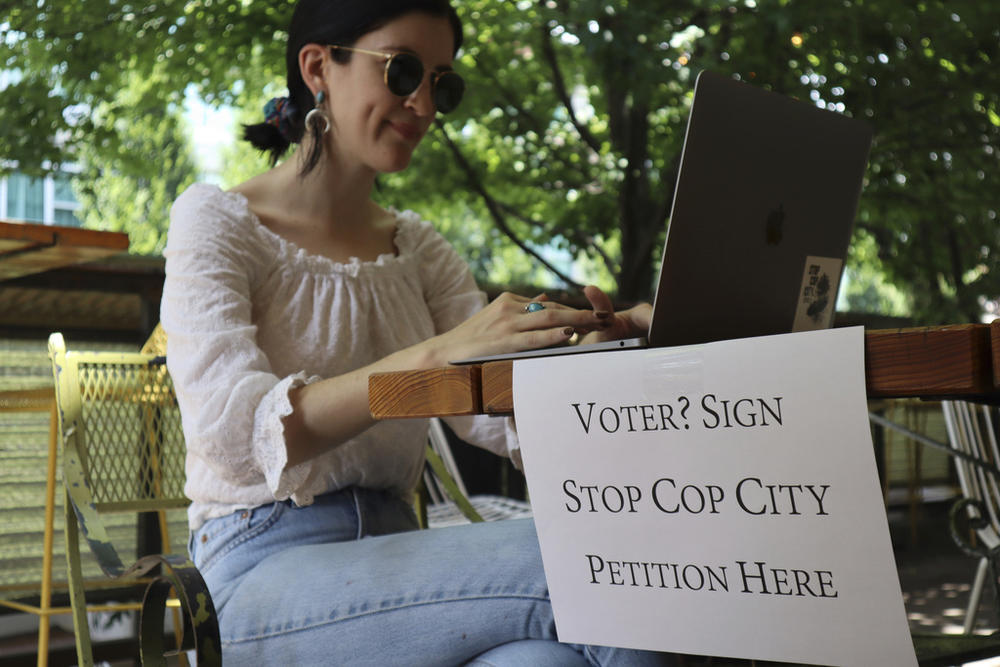
Section Branding
Header Content
Georgia Today: Mental illness in kids; High school athletes NIL rule change; Outkast breaks record
Primary Content
On the Tuesday, Oct. 3 edition of Georgia Today: A new study finds the number of kids being treated for mental illness is on the rise; a new rule allows high school athletes in Georgia to profit from their own name, image and likeness; and an Outkast album becomes rap's top-selling record of all time.

Peter Biello: Welcome to the Georgia Today podcast from GPB News. Today is Tuesday, Oct. 3. I'm Peter Biello. On today's episode, a new study finds the number of kids being treated for mental illness is on the rise. A new rule allows high school athletes in Georgia to profit from their own name, image and likeness. And an Outkast album becomes rap's top-selling record of all time. These stories and more are coming up on this edition of Georgia Today.
Story 1:
Peter Biello: A new study finds the number of children and young adults being treated for mental health concerns rose between 2019 and August of last year. GPB's Ellen Eldridge reports on what's likely driving the increase.
Ellen Eldridge: The report says school closures, social distancing and the loss of family members contributed to the increase. Attention deficit hyperactivity disorder, anxiety disorders and adjustment disorders accounted for most mental health care visits and spending. Kathryn Allen is a child and adolescent counselor with Thrive Works in Atlanta.
Kathryn Allen: So within the past three years, there is definitely an adjustment period and definitely anxiety, I can say that. Now, there have been cases of depression. There have been, you know, children that are experiencing educational neglect.
Ellen Eldridge: Last year, suicide was the third-leading cause of death for Georgians between 10 and 34 years old. For GPB News, I'm Ellen Eldridge.

Story 2:
Peter Biello: About 100 people with loved ones incarcerated in Georgia prisons protested outside the Georgia governor's mansion today to demand Gov. Brian Kemp take action against prison violence. GPB's Grant Blankenship reports.
Grant Blankenship: Protesters were kept about a football field away from the neoclassical columns of the governor's mansion in Atlanta's Buckhead neighborhood.
Crowd chanting: No more death!
Grant Blankenship: Carrie Proffitt carried a poster board photo collage of her son. She says the Georgia Department of Corrections has a staffing problem.
Carrie Proffitt: Because they don't have enough guards. They keep all the housing units unlocked.
Grant Blankenship: Which she says led to her son being assaulted. The lack of guards posed a different danger when he was placed in what was supposed to be a safe cell of his own.
Carrie Proffitt: And they were supposed to check on him every 15 minutes. And he died May 6 of this year.
Grant Blankenship: Proffitt's son took his own life — one of 28 suicides in Georgia present to the end of August this year. Reshawnda Russell traveled from Detroit to protest on behalf of her son, who she says files a formal grievances with Jesse when he feels threatened. She says those go nowhere.
Reshawnda Russell: And nobody wants to help you, not even an attorney. It's, it's — they're scared!
Grant Blankenship: Russell says as a result, violations of inmates' civil rights are ignored until it's far too late.
Reshawnda Russell: My son had to be dead. I mean, forgive me, but he had to be gone in order to get help. And that's not fair. It's not fair at all.
Grant Blankenship: September marked two years of a federal Department of Justice investigation into Georgia prison conditions. For GPB News, I'm Grant Blankenship an Atlanta.
Story 3:
Peter Biello: The Georgia High School Association is allowing high school athletes to make deals to profit from their name, image and likeness, two years after Georgia college athletes got the same allowance. The group's executive director, Robin Hines, says the vote by the association's board yesterday was inevitable after 31 other states already allowed such agreements.
Robin Hines: It's coming, it's going to be here and it's just a matter of, you know, are you going to get your hands around it and make sure that it's what it is that you need to do.
Peter Biello: The new rules come with a number of restrictions aimed at separating the school from the athlete in commercial sponsorships. So no school logos, names or uniforms in ads, for example. The rules also prevent athletes from making agreements tied to enrollment in any specific school or tied to athletic achievement.
Robin Hines: What you have to remember says you cannot capitalize off of athletic performance. You can't pay for play. You know, a student can't get paid for scoring a touchdown or, you know, you know, these type of things. So, you know, I'm kind of shocked a little bit at the — at all the attention.
Peter Biello: Hines says the association wanted to approve name, image and likeness deals before litigation or state lawmakers forced them to. You can hear more of the conversation with Hines about the NIL decision as well as other big issues in Georgia high school sports in this week's episode of the Football Fridays in Georgia podcast, out tomorrow.

Story 4:
Peter Biello: Federal health care agencies are recommending people get the updated COVID vaccine, which offers people better protection against new variants. But getting a shot has been tricky. Shipping delays and insurance snags have added to the difficulty. And in rural areas, getting the shot is even harder, as GPB's Sofi Gratas reports.
Sofi Gratas: It's the first time health care providers are having to pay out of pocket to order the vaccines since the Federal Government stopped supplying them for free following the end of the COVID-19 public health emergency. Each dose it costs around $130. That's also the cost to people who can't get it covered by insurance. Pharmacist at Sandersville Drug Company, Lisa McDonald, says it's no surprise smaller pharmacies in rural communities are hesitant to stock up.
Lisa McDonald: So here we're having to put the money upfront, not even knowing what the third-party insurances are going to pay and I don't think we'll have people paying out of pocket cash for them.
Sofi Gratas: Meaning they have to order doses strategically. For GPB News, I'm Sofi Gratas.
Story 5:
Peter Biello: A coalition of environmental groups is calling on the federal government to enact emergency rules to protect a vanishing species of whale from lethal collisions with large ships. The groups filed their petition with the National Oceanic and Atmospheric Administration late last month in an effort to protect the North Atlantic right whale. The giant whales' calving grounds are located off the coast of Georgia and Florida. They number less than 340. NOA says ship collisions are among the most dire threats to the survival of the whales, and it's proposed a rule to prevent them by making more vessels slow down for whales. Conservationists say protection is needed before the migration season, which begins in fall.
Story 6:
Peter Biello: Commissioners in Southeast Georgia's McIntosh County have canceled their next public meeting. This comes following a recent commission vote to rezone a historic Gullah Geechee community. GPB's Benjamin Payne reports.
Benjamin Payne: Mcintosh county officials violated Georgia's open meetings law multiple times last month by barring the public from recording public meetings about the rezoning of Sapelo Island. The measure was roundly criticized by the Gullah Geechee community, who fear the change will open their ancestral land to outside developers. The county courthouse where the meetings took place was filled to capacity, leading the sheriff to raise security concerns. But the courthouse was staffed with sheriff's deputies and had a walkthrough metal detector required for entry. Now, McIntosh County commissioners are looking for a new place to hold meetings, and they plan to convene a special gathering in the coming weeks. For GPB News, I'm Benjamin Payne.
Story 7:
Peter Biello: The Krispy Kreme on Ponce de Leon Avenue in Atlanta is set to reopen next week, Oct. 10, more than two years after the original building was destroyed by arson. The donut shop owned by former NBA star Shaquille O'Neal has been a staple in the community for nearly 60 years. Krispy Kreme says the new shop balances modernization and the location's history, including a custom mural and plaque and a refurbished iconic Krispy Kreme heritage sign.

Story 8:
Peter Biello: An organization opposed to a planned police and firefighter training center in Atlanta has released a list that it says are corporations that have contracts to build the controversial facility. The list, published yesterday by the American Friends Service Committee, comes days after the city of Atlanta released the names, addresses and phone numbers of people who signed petitions seeking a referendum to stop the center's construction. It's the latest development in the fight over a referendum that is a direct result of a Georgia Supreme Court decision in February that opened the door for citizen initiatives to overturn decisions made by local officials. It's a major shift in the relationship between Georgians and their local governments, and it all started with a proposed spaceport in Southeast Georgia's Camden County that voters there overwhelmingly rejected last year. GPB's Orlando Montoya spoke with Clare Norins, a University of Georgia law school assistant clinical professor, about the change. She also directs UGA's First Amendment Clinic, which represents clients on a range of First Amendment issues, including the right to petition the government for redress of grievances.
Clare Norins: Well, the first time I became aware of this issue was through the Camden County spaceport controversy or difference over what the community members wanted versus what the county commissioners wanted in terms of building this spaceport launching site over protected wetlands. And it seemed I got involved kind of late in the process of an amicus party, but it seemed like the residents of that community had really tried everything that they could to have input into the process, really trying to bring to the commissioners' attention the harm it would bring to the community, both environmentally and also for the quality of life of the people who live there. And it was only as a last resort that they looked to the Georgia state constitution, which does allow for petitions that can lead to referendum votes.
Orlando Montoya: If it was in the Constitution all this time, how come nobody used it before?
Clare Norins: That's a really good question. I don't know the answer to that.
Orlando Montoya: Is it hard?
Clare Norins: It takes a lot of work to collect enough signatures on a petition to meet the legal threshold for requiring a referendum vote. So, you know, under the state constitution, it can be anywhere from 10% to 25% of the registered electors in the county. And then those signatures have to be certified as, you know, authentic and legitimate. And then at that point, the referendum vote would be mandated. So it's not something that can be easily or lightly done. It really is a measure of last resort.
Orlando Montoya: And I guess maybe I would ask if it was in the Constitution all this time, why did it even have to go to the Supreme Court?
Clare Norins: Well, the conflict was really between what the state constitution says about home rule for counties, and then there's a statutory municipal home rule. So this was an act adopted in 1965 by the Georgia state legislature that gave cities or municipalities home rule authority to hold petitions and referendum votes. So the language between the statutory home rule for cities and then the constitutional provision that gives home rule power to counties, the language of those two laws was is very parallel.
Orlando Montoya: So the Supreme Court now has cleared this up. And in its decision, the justices predicted that this would unleash a series of petitions over a range of issues zoning, alcohol, ordinances, whatever, which would be expensive for local governments. McIntosh County residents are pledging to start a petition drive there. And there's the controversial Georgia P\police training center that some refer to as Cop City. Where are we headed with these cases, and is it too soon to tell whether this is an issue of like a genie being let out of a bottle?
Clare Norins: I think it's a little too soon to tell. I think it's no small thing, as we mentioned, to organize a petition drive and to collect enough signatures and have them certified and then to hold — hold the vote. And then you've got to get people out to vote. Right. Because if you don't have a majority vote, then the vote doesn't help you. So I think we need to let it play out a few more years and see how many of these petitions really come to pass. But I — I wouldn't necessarily say that an increased number of petitions and referendums is a is a bad thing. I understand it may be inconvenient for the city or county government officials who have done something that the people don't like. But I — but I think in terms of having a participatory democracy, it's important that we have these checks and balances.
Peter Biello: That was Clare Norins of the University of Georgia's First Amendment Clinic and the University of Georgia Law School. She was speaking with GPB's Orlando Montoya about citizen-led petition drives in Georgia.
Story 9:
Peter Biello: School officials in Savannah's Chatham County say a high school football player died after suffering a medical emergency on the sidelines of a game last night. The junior varsity team from Windsor Forest High School was playing when on site emergency responders rushed to help one of its players. The district did not release the player's name and gave no further details about what happened. A statement says he was pronounced dead after being taken to a hospital. The student had played earlier in the game but had rotated out before needing medical attention.
Story 10:
Peter Biello: In baseball news, the Miami Marlins face the Phillies in Philadelphia this evening for the first of a three-game wild card series. The first team to win two of those games will go on to face the Braves in Atlanta on Saturday. The Braves are preparing for the kickoff of the division series Saturday with games simulation workouts today through Thursday. The team also announced today that Braves legend Andrew Jones with throw out the ceremonial first pitch on Saturday and Grammy Award winner Jason Isbell will throw out the first pitch on Monday's Game 2.

Story 11:
Peter Biello: And Atlanta rap duo Outkast's 2003 double album Speakerboxx/The Love Below has surpassed an album by Eminem to become the genre's top-selling record. The Recording Industry Association of America, says Speakerboxx/The Love Below achieved 13 times platinum status late last month. Eminem's The Eminem Show reached 12 times platinum in March of last year. The group's fifth studio album, Speakerboxx/The Love Below featured popular hits "Roses," "Hey Ya!" and "The Way You Move."
MUSIC: Outkast - "The Way You Move"
Peter Biello: This milestone comes as the duo celebrates the 25th anniversary of the release of Aquemini, which Rolling Stone said at the time cemented Atlanta's reputation as hip hop's most avant garde area code.
Peter Biello: And that is it for this edition of Georgia Today. If you want to learn more about any of these stories, visit our website, GPB.org/news. And if you haven't subscribed to this podcast yet, I highly recommend it. Do it now and we will pop up so fresh and so clean in your podcast feed tomorrow afternoon. Sorry, I had to do the Outkast reference. If you've got feedback for us, let us know. We'd love to hear from you. Email us at GeorgiaToday@GPB.org. I'm Peter Biello. Thanks again for listening. We'll see you tomorrow.
---
For more on these stories and more, go to GPB.org/news.
Read the latest updates on the Georgia indictments here.



